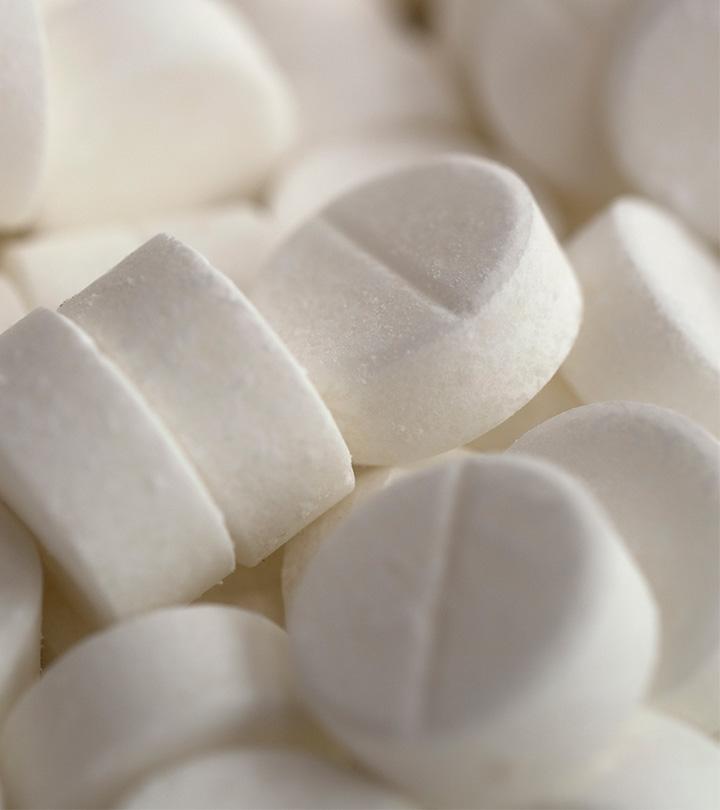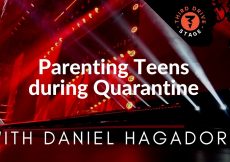Ritalin is a brand name of the generic drug methylphenidate, a central nervous system stimulant commonly prescribed for ADHD. It helps control hyperactivity and impulsive behavior and improves concentration in children. Methylphenidate is available only on prescription as an immediate-release or sustained-release formulation (1).
This post talks about the safe use of Ritalin for children, its side effects, and potential risks.
How Does Ritalin Work?
The mode of action of methylphenidate is not fully understood, but it is thought to act on the cortex and the brain stem regions to produce stimulant effects. It may show its action by blocking the reuptake of neurotransmitters, such as dopamine and norepinephrine, resulting in increased concentration (2). These effects could be desired to mitigate the symptoms of ADHD in children.
Is Ritalin Safe For Children?
The US Food and Drug Administration (FDA) approves the use of Ritalin for children above six years of age. It should be given to a child only when prescribed by a doctor. Ritalin should not be given to children with the following conditions (3).
- Anxiety, tension, or agitation
- Glaucoma (eye disorder)
- Tics (repeated movements or sounds that are difficult to control) or Tourette’s syndrome (or family history of it)
- Children on antidepressant medications of the class called monoamine oxidase inhibitors (MAOIs) within the past 14 days
- Children with allergies to any component of the Ritalin formulation, including inactive ingredients, such as lactose, magnesium stearate, polyethylene glycol, starch, sucrose, and talc
What Is The Dosage Of Ritalin In Children?
Ritalin is available in the following dosages (4) (5).
- Immediate-release tablets (5, 10, and 20 mg)
- Extended-release tablets (Ritalin SR of 20 mg strength) and capsules (Ritalin LA of 10, 20, 30, and 40 mg strength) where SR and LA stand for sustained-release and long-acting, respectively
Methylphenidate is generally used as a part of the total ADHD treatment program, which includes counseling and behavioral therapies. The following points may give you an idea of the dosage regimen of Ritalin.
- Ritalin should be started at lower doses of 10 mg per day (5 mg twice daily before breakfast and lunch).
- Your doctor may suggest gradual increments in doses (5 to 10 mg) per week, depending on the improvement in your child.
- The drug is usually discontinued if there is no improvement after appropriate dose adjustments over one month.
- Extended-release tablets or capsules are effective for eight hours. These may be used when the eight-hour dosage of the immediate-release tablets adds up to a single Ritalin SR or Ritalin LA formulation.
- The daily dosage should not exceed 60 mg.
What Are The Possible Side Effects Of Ritalin On Children?
Ritalin affects the brain’s neurotransmitters and could affect other organ systems as well. Common side effects of methylphenidate in children that may be controlled by reducing the dosage include (4) (6):
Ritalin may show the following serious side effects in some cases.
- Slow growth in children (height and weight)
- Seizures (especially if the child had seizures before)
- Blurred vision or changes in eyesight
- Priapism (painful and prolonged penile erection) in adolescent males
Some serious adverse effects that require immediate medical attention may be reported in children with preexisting health conditions.
- Increased risk of sudden death in children and adolescents with serious heart problems. Stimulant medications should generally be avoided if the child has conditions such as cardiomyopathy and arrhythmia (heart rhythm abnormalities).
- Risk of a sudden increase in blood pressure in children with preexisting hypertension (high blood pressure). Inform your doctor if your child shows symptoms such as chest pain, fainting, altered heart rate, or shortness of breath.
- It may worsen the symptoms of other psychiatric problems (mental disorders) such as bipolar illness, mania, and aggressive behavior. New psychotic or manic symptoms such as hallucination (hearing voices or seeing things that are not there) and delusion (believing things that are not true) may occur in some cases.
- Blood circulation problems in fingers and toes if the child has issues with blood vessels. It may cause numbness, pain, changed skin color, and temperature sensitivity in the fingers and toes.
What Are The Precautions To Take When Using Ritalin For Children?
Certain precautions need to be taken before and after your child has been prescribed Ritalin (3).
- Inform your physician about any other health condition of your child or whether they are being treated for any other condition.
- Do not hesitate to tell your child’s psychologist about any family history of mental disorders or suicides, including any history with the child.
- Inform your doctor about medications, such as antidepressants, cold/allergy medicines, seizure medications, blood thinners, or blood pressure medications (antihypertensives), which your child is currently on or has taken recently. Ritalin could have undesired drug interactions.
- Make sure to inform your child’s healthcare professional of Ritalin use before starting any over-the-counter (OTC) product, health supplement, or herbal formulations for your child.
- Keep the medication away from children as it may cause drug dependence and abuse, even in school-aged children. Refrain from sharing or giving away this medication.
- Seek emergency medical support in case of overdose.
When combined with behavioral therapy, Ritalin or methylphenidate at proper doses is safe and effective in helping children with ADHD. It reduces severity, hyperactivity, and inattention symptoms while improving impulse control in children with ADHD (7). Adverse effects may be minimized by using the lowest dose required after strict monitoring of improvement. Inform your doctor about any side effects in your child and ensure regular follow-ups.
References:
MomJunction’s articles are written after analyzing the research works of expert authors and institutions. Our references consist of resources established by authorities in their respective fields. You can learn more about the authenticity of the information we present in our editorial policy.
Recommended Articles
The following two tabs change content below.




































